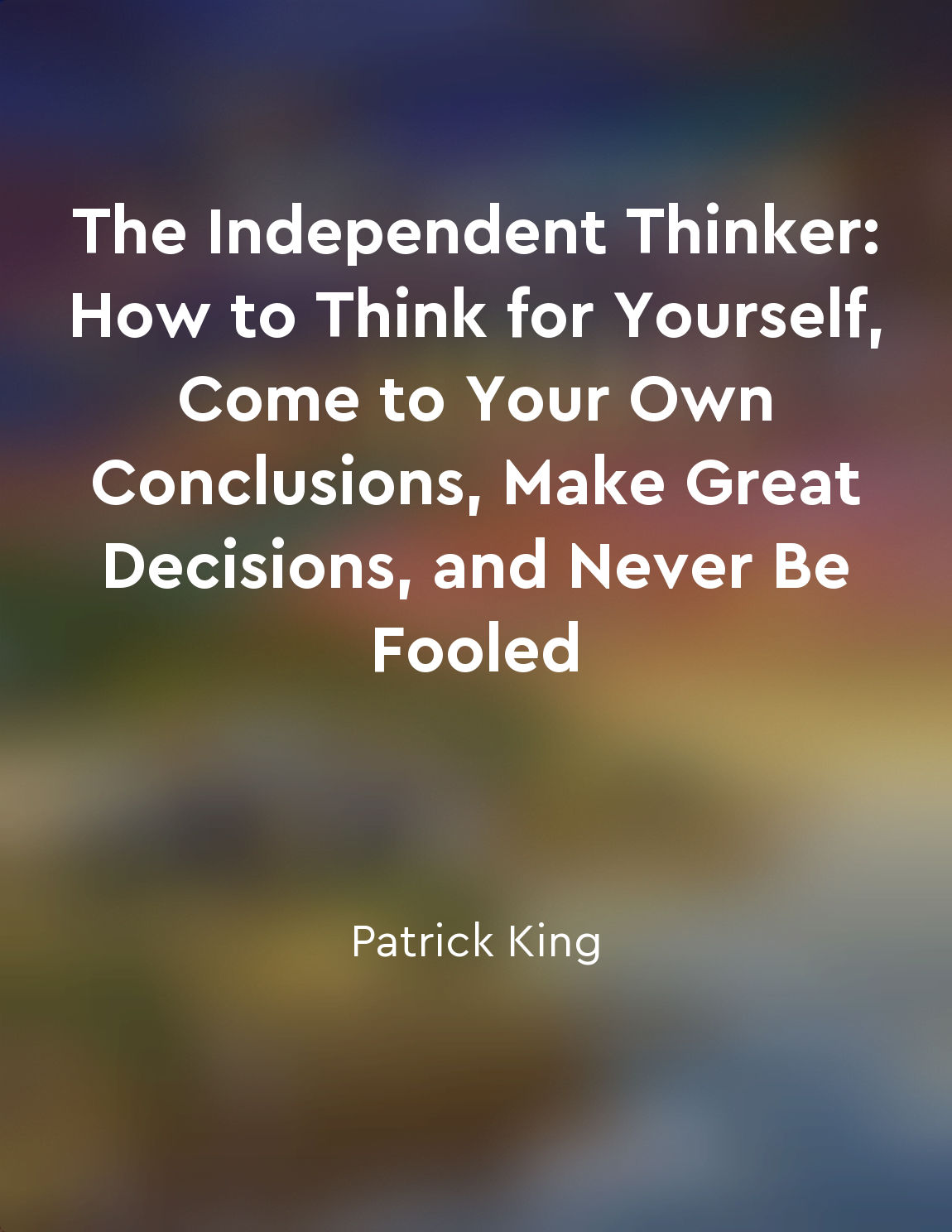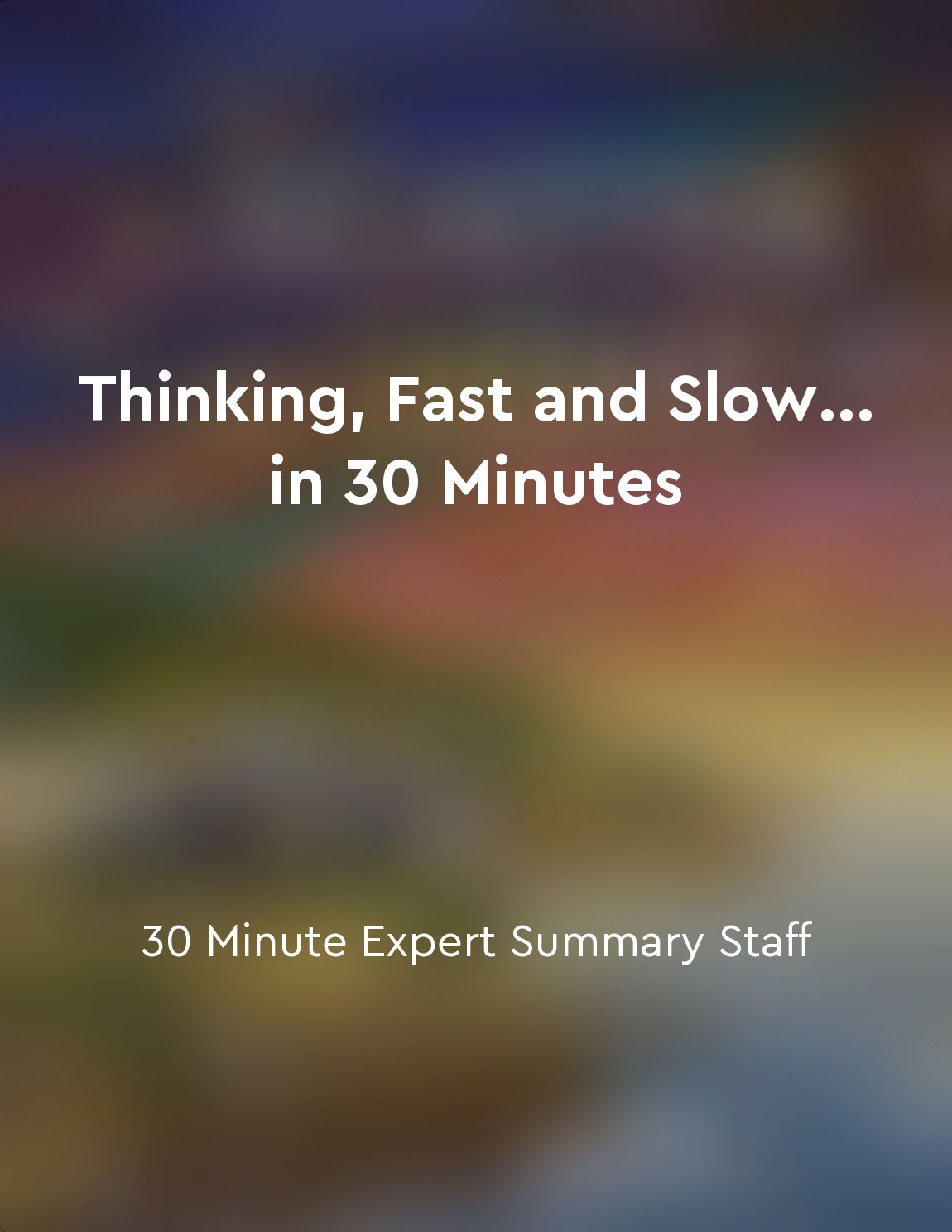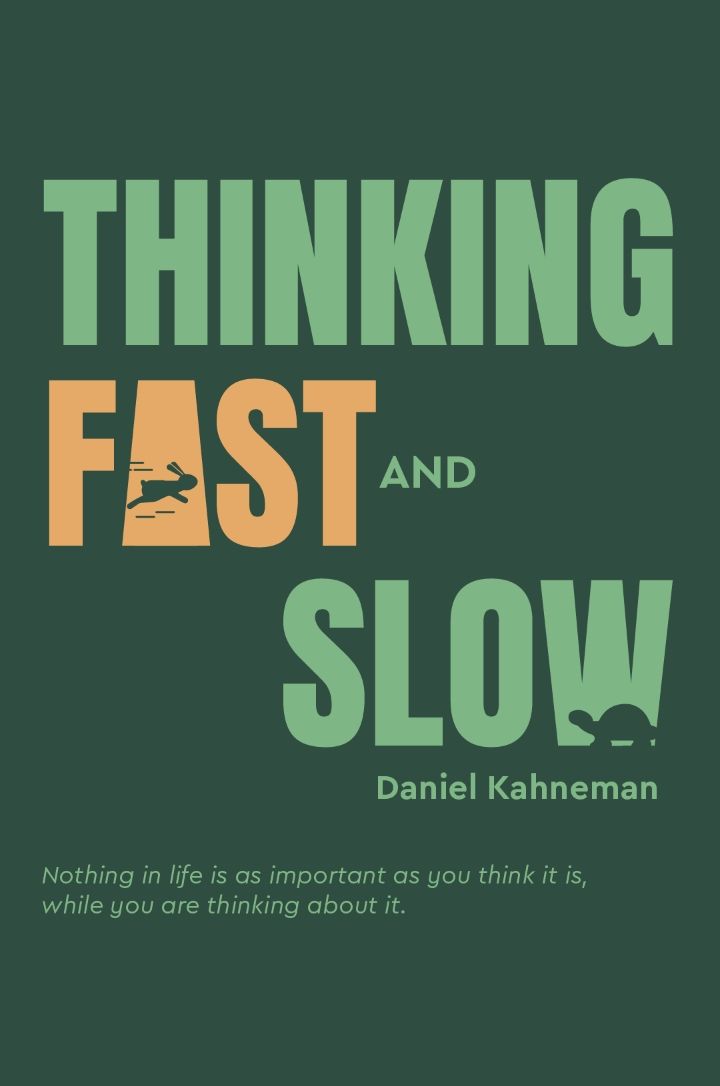Audio available in app
Anchoring effect shapes our numerical estimates from "summary" of Thinking, Fast and Slow by Daniel Kahneman
The anchoring effect is a cognitive bias that influences our numerical estimates. When we are asked to make a judgment about a quantity, we often start by considering a number that is suggested by the question, which then serves as an anchor for our final estimate. This initial anchor can have a powerful impact on our subsequent judgments, even if the anchor is completely random or irrelevant to the question at hand. In one study, participants were asked to spin a wheel of fortune that was rigged to land on either 10 or 65. They were then asked to estimate the percentage of African countries in the United Nations. Surprisingly, those who landed on 10 guessed around 25%, while those who landed on 65 guessed around 45%. The arbitrary number they landed on influenced their estimates, even though it had no logical connection to the actual percentage of African countries in the UN. Another example of the anch...Similar Posts
Flexibility in decisionmaking can lead to better outcomes
In our quest to make choices, we often tend to believe that sticking to a decision is a sign of strength and certainty. We are ...

Take ownership of your beliefs
Taking ownership of your beliefs means that you are responsible for what you believe in. It means that you have carefully exami...

An individual's rationality is constrained by their cognitive limitations
The concept that an individual's rationality is constrained by their cognitive limitations is a key idea in understanding human...
Personal relationships are crucial for wellbeing
In the course of a lifetime, people will experience dizzying highs and crushing lows. They will face moments of triumph and mom...
Stay informed about market trends
Staying informed about market trends is crucial for investors. Knowing what is happening in the market can help you make better...
Rational decisionmaking requires systematic analysis
Systematic analysis is essential for making rational decisions. This means breaking down a problem into smaller components and ...
The role of societal influences on our money beliefs
Societal influences play a significant role in shaping our beliefs and attitudes towards money. From a young age, we are expose...

A high income does not guarantee financial security
It's a common belief that a high income automatically leads to financial security. After all, more money means more resources, ...

System two is deliberate and slow
System two is deliberate and slow, meaning that it requires effort and concentration to engage. This system is activated when w...
Money beliefs are learned from childhood
Our beliefs about money are deeply ingrained within us from a young age. We absorb attitudes and behaviors towards money from t...

